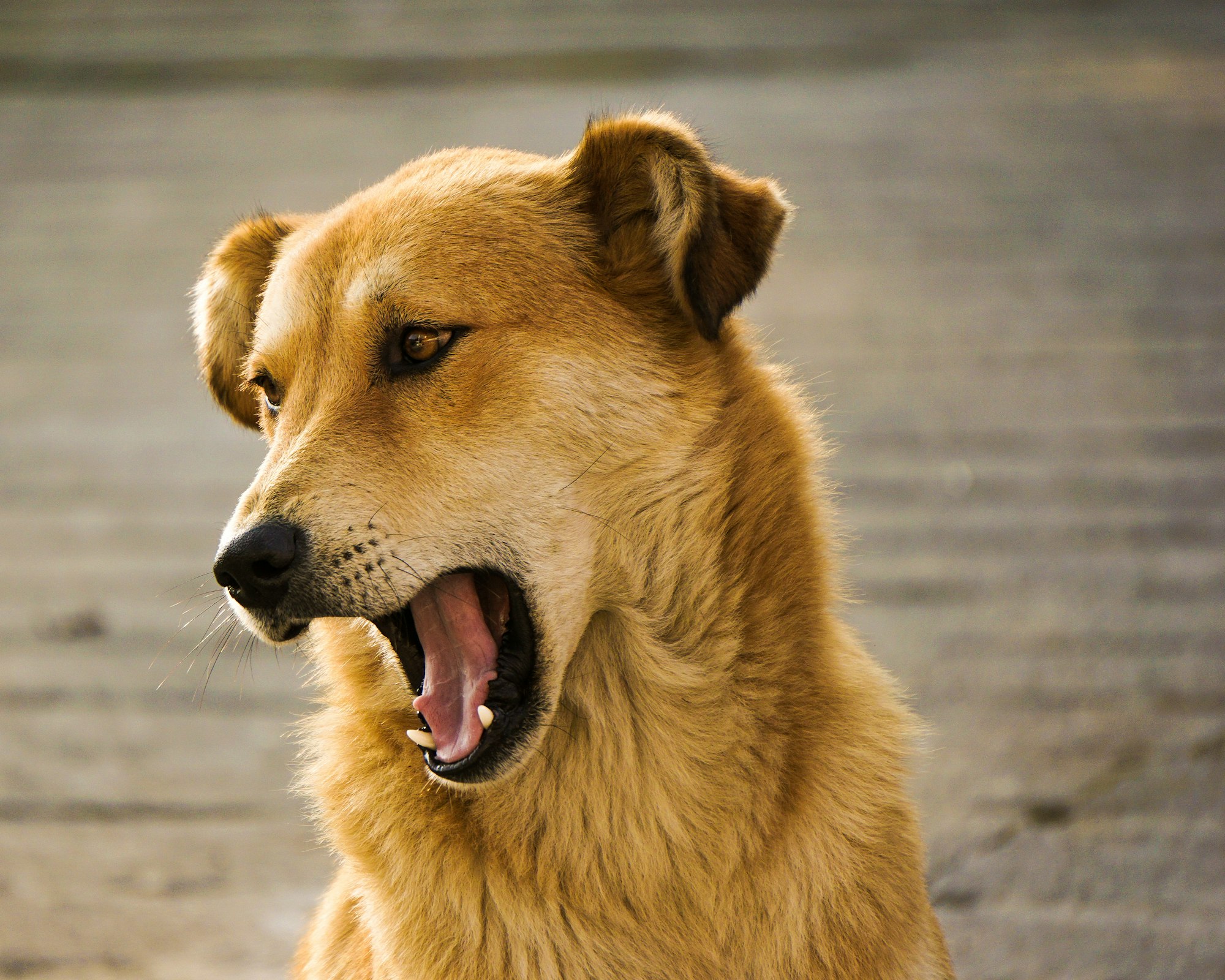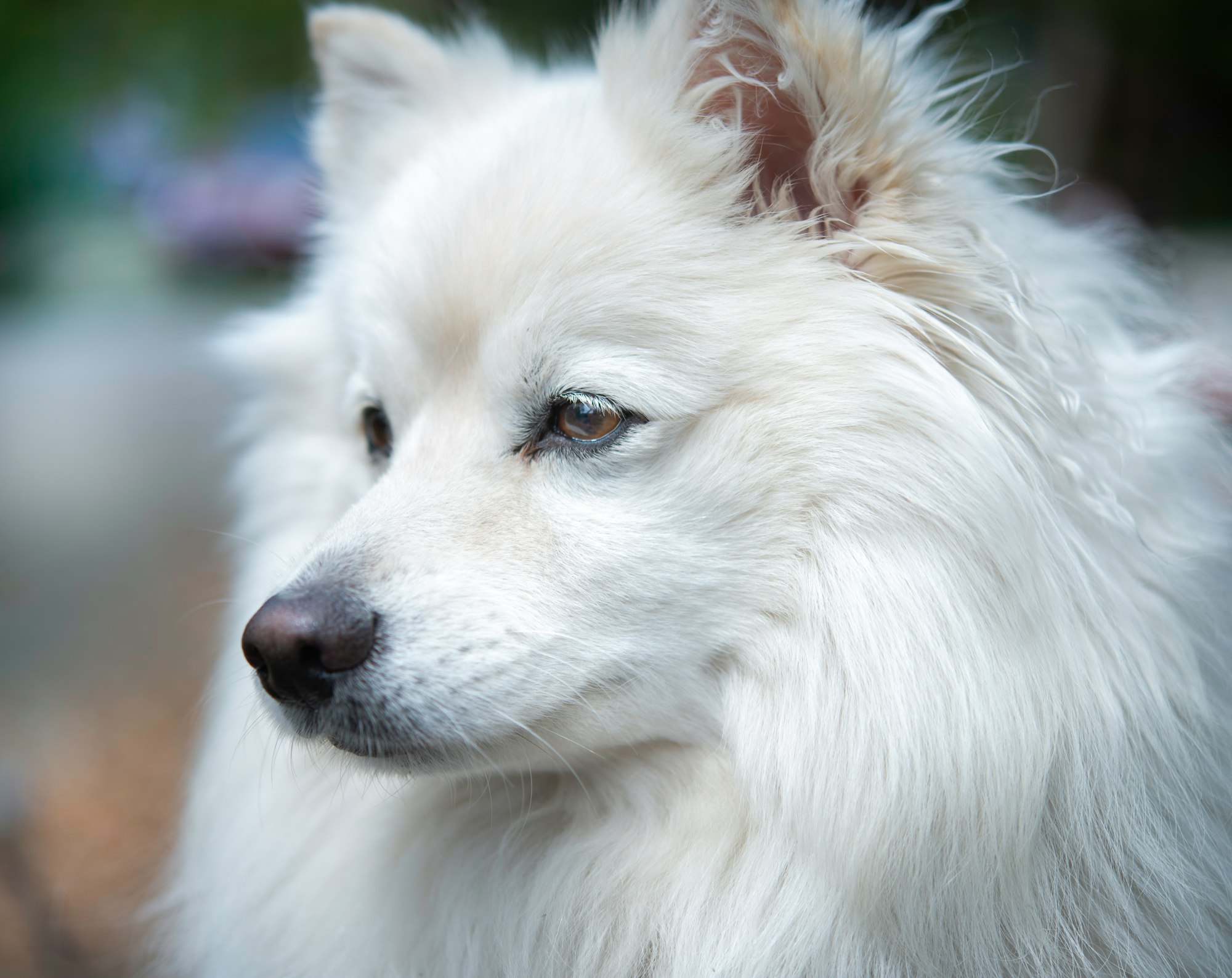Anyone who's spent time with a dog knows that unmistakable "guilty" expression they sport after some mischief—maybe after toppling a vase or enthusiastically excavating your prized garden blooms. That endearing, slightly bashful look seems to say, "Did I do that?" It sparks the question: are these furry companions truly processing their mistakes and learning from them? As we journey into the captivating realm of canine cognition, we'll explore this and more, shedding light on the intriguing intricacies behind those expressive canine gazes.

Canine Learning: Not Just a Game of Fetch
When it comes to canine learning, there’s so much more than just sit, stay, and fetch. Dogs, like humans, have a complex cognitive system that allows them to perceive, process, and act upon the world around them. Their brains are constantly at work, trying to make sense of the myriad of stimuli they encounter.
Studies on Dog Cognitive Abilities have shown that dogs can learn not only from rewards but also from their mistakes. Just think about it. You're teaching your dog a new trick, and they mess it up a couple of times. But after a few tries, they get it right. That’s because they're employing a form of mistake-based learning.
Dog Behavior Analysis: Reading Between the Barks
If you've ever wondered why your dog behaves in a certain way, Dog Behavior Analysis is your answer. It's the study of understanding why dogs do what they do. Dogs are incredibly observant. They pick up on our cues, learn from their environment, and yes, even from their mistakes.
Remember that time your dog got into the trash, and you found them with that guilty look? While some argue it's just a submissive behavior, others believe it's a form of learning. They've connected the dots between the act and the consequence. Next time, they might think twice!
Mistake-Based Learning in Dogs: A Deep Dive
What exactly is Mistake-Based Learning in Dogs? Well, it's the idea that dogs, like us, can reflect on their actions and adapt their future behavior based on past mistakes. While they might not have the same level of introspection as humans, they do have a basic form of associative learning.
Take, for instance, a dog that’s constantly jumping on the couch. After being told off several times, the dog might decide it’s not worth the hassle and find a comfy spot elsewhere. This is a perfect example of a dog adapting its behavior based on past repercussions.
Canine Problem Solving: More Than Just Digging Holes
Another fascinating aspect of canine cognition is their problem-solving skills. Canine Problem Solving isn’t just about figuring out how to get that last bit of peanut butter from the jar. It's about adapting to new situations and challenges.
Have you ever seen a dog figure out how to open a door, fetch a ball from under the sofa, or even navigate a maze? These are all examples of canine intelligence at work. And often, it’s their past mistakes that guide their current decisions.
Dogs and Memory Retention: Do They Really Remember?
Dogs and Memory Retention is a topic of debate among researchers. While dogs might not remember specifics like we do, they certainly have associative memory. This means they associate certain events, places, or people with past experiences, whether good or bad.
So, if your dog has had a negative experience at the vet, they might get anxious the next time you drive that way. On the flip side, if they've been rewarded for good behavior in a specific scenario, they're likely to repeat it, expecting a positive outcome.
Behavioral Responses in Dogs: The Good, the Bad, and the Furry
When we look at dogs, their behavioral patterns offer fascinating insights into how they perceive their world and respond to it. Every growl, tail wag, and bark provides a glimpse into their minds. But what drives these Behavioral Responses in Dogs?
Dog Training Techniques: From Praise to Patience
The way we train our dogs significantly affects their behavior. Using positive reinforcement techniques, like rewarding them for good behavior, has been proven to be more effective and beneficial in the long run. When a dog makes a mistake during training, instead of a harsh reprimand, guiding them gently towards the right action often yields better results.
Why? Because dogs, just like us, prefer a loving touch and words of encouragement. When they realize they'll get affection or a treat for doing something right, they're more likely to remember and repeat that action. And if they err? They'll recall the lack of reward and strive to get it right the next time.
Canine Intelligence Research: What Science Says
Canine Intelligence Research has been a hot topic in recent years. Scientists have delved deep into understanding how dogs think and process information. One of the groundbreaking discoveries is the idea that dogs have a "theory of mind." This means they can understand and even predict human emotions and reactions to some extent.
This predictive ability ties back to our initial topic of dogs learning from their mistakes. When they anticipate a negative reaction from their owner due to a past mistake, they might adjust their behavior to avoid it. It's incredible how our four-legged buddies can be so in tune with human emotions, isn't it?
The Emotional World of Dogs: Not Just Black and White
Often, we believe that animals live in a world of basic emotions. But dogs, in their rich tapestry of feelings, experience a spectrum of emotions ranging from joy, sadness, fear, and even jealousy. When they make mistakes, it's not just about the action and its consequence. It's about how they feel during that process.
Have you ever noticed a dog sulking after being told off or showing excitement when praised? These emotions play a significant role in their learning process. An emotionally positive experience reinforces good behavior, while a negative one acts as a deterrent.
Dogs in Our Lives: More Than Just Pets
Ever paused to think about the integral role our furry friends play in our lives? From being our morning jog companions to our late-night confidants, they're always there, tails wagging, ready for the next adventure or a simple cuddle session. This intricate bond that we share goes beyond just companionship; it's a blend of mutual respect, understanding, and learning.

Canine's Role in Human Evolution: A History Lesson
Our history with dogs dates back thousands of years. Early humans and wolves, the ancestors of our modern-day dogs, shared a mutually beneficial relationship. As Canine Cognition developed over millennia, so did their role in our lives.
Early dogs, just like modern ones, made mistakes. Maybe a wolf ventured too close to the fire or took a bite from the food meant for humans. But with every error, they learned and adapted. Over time, this adaptability and the ability to learn from mistakes helped forge a powerful bond between man and canine.
Modern-Day Dog Heroes: Stories of Brilliance
There's no shortage of stories where dogs, with their keen senses and intelligence, have saved lives or showcased incredible feats of intelligence. From guiding the visually impaired to detecting diseases or even rescuing people from disasters, their cognitive abilities are continually at play.
A particular story that comes to mind is of a dog who, after mistakenly biting a child while playing, became extra gentle around kids. The dog had realized the consequence of its action and made a conscious effort to be careful in the future. It's a testament to their ability to learn from errors and adapt accordingly.
The Magic of Bonding: Understanding Through Errors
If dogs never made mistakes, would we appreciate their growth and development as much? Every chewed-up shoe or accidental indoor "accident" is an opportunity. An opportunity for them to learn and for us to understand them better.
By addressing these mistakes with patience and empathy, we not only foster their learning but also deepen our bond with them. The trust that forms when a dog realizes you're guiding them, not punishing them, is pure and unparalleled.
Charting the Path Ahead: A Bright Future for Canine Cognition Research
The more we discover about Canine Cognition, the more avenues open up. Recent studies even hint at dogs having a rudimentary sense of morality. The ongoing research promises a future where we'll understand our furry friends even better.
The intriguing question of "Do Dogs Learn from Mistakes?" isn't just about understanding their cognitive abilities. It's about appreciating the depth of their character, the richness of their emotions, and the myriad ways they touch our lives.
In wrapping up, let's remember that every misstep, every wag, every bark, and every nuzzle is a page in the beautiful story we share with our dogs. A story of love, understanding, growth, and endless adventures. Let's cherish it and look forward to the many tales yet to be told.
The Art of Communication: How Dogs Speak Through Actions
Dogs might not converse with words, but they're masters at communicating through actions, sounds, and body language. Every growl, whimper, or wag is a message waiting to be deciphered.
The Bark Spectrum: Not Just Noise
Did you know that dogs have a variety of barks for different situations? From a playful yip to a warning growl, the Bark Spectrum is vast and varied. Recognizing the subtleties in their barking can provide invaluable insights into their feelings and thoughts. So the next time you hear a bark, pause and listen; there's a story behind every sound.
Posture Tells a Tale: Decoding Dog Body Language
Observing your dog's posture can reveal a lot about their current state of mind. A tucked tail might indicate fear or submission, while raised hackles could be a sign of agitation. By understanding these non-verbal cues, we can better respond to their needs and even predict their next move.

Canine Personalities: As Unique As Our Own
Just like humans, no two dogs are the same. Each one has a unique personality shaped by their genetics, upbringing, and experiences.
Nature vs. Nurture: The Making of a Dog's Character
The age-old debate of Nature vs. Nurture isn't restricted to humans. Dogs too exhibit traits that can be attributed to their breed (nature) and their environment or upbringing (nurture). A dog's personality evolves, and understanding this dynamic can help in shaping positive behaviors and curbing negative ones.
Social Butterflies or Lone Wolves: The Social Spectrum of Dogs
Some dogs love the company and thrive in social situations, while others prefer solitude. Recognizing where your dog falls on this social spectrum is crucial. It can guide you on playdates, park visits, and even training sessions.
Building Trust: The Cornerstone of Canine-Human Relationship
Trust is the bedrock of any strong relationship, and the bond between humans and dogs is no exception. But how do we establish and nurture this trust?
Positive Reinforcement: More Than Just Treats
Positive Reinforcement is about rewarding good behavior. When a dog realizes that doing something right, like obeying a command or not barking at the mailman, leads to positive outcomes (like treats or praise), they're more likely to repeat it. It's a method that builds trust and strengthens the bond between owner and pet.
The Healing Touch: Physical Affection in Building Bonds
Never underestimate the power of a gentle pat, a belly rub, or a soothing voice. These gestures of love and affection are therapeutic, offering comfort and reinforcing trust.
Conclusion:
In our journey exploring canine cognition, we've unveiled the rich tapestry of dogs' learning processes, their vast communication repertoire, and the unique personalities they possess. From understanding the nuances in their barks and body language to appreciating the blend of nature and nurture shaping their characters, it's evident that dogs are more than just pets; they're complex beings with emotions, intelligence, and an unparalleled bond with humans. Building trust through positive reinforcement and physical affection further cements our bond. In essence, every bark, wag, and nuzzle is a testament to their growth, understanding, and the deep, enduring relationship we share.
FAQs
- Do dogs really learn from their mistakes?
- Yes, dogs have the ability to learn from their mistakes. This is a part of their cognitive system, allowing them to adapt and modify their behavior based on past experiences and consequences.
- How do dogs communicate their feelings or thoughts?
- Dogs communicate through a combination of barks, body language, and actions. Each bark or posture provides insights into their emotions and intentions.
- Is positive reinforcement effective for training dogs?
- Absolutely. Positive reinforcement, which rewards good behavior, has proven to be an effective method for training dogs, fostering trust, and strengthening the bond between owner and pet.
- Do dogs have unique personalities like humans?
- Yes, each dog has its own distinct personality, shaped by genetics, upbringing, and individual experiences. Recognizing and understanding these traits can help in their care and training.
- Can dogs predict human emotions?
- Recent studies in canine cognition suggest that dogs might have a rudimentary "theory of mind," enabling them to understand and even predict human emotions to some extent.
- How crucial is trust in the human-dog relationship?
- Trust is the cornerstone of the relationship between humans and dogs. It forms the foundation for effective training, mutual respect, and a deep, lasting bond.
- Are all dogs inherently social creatures?
- While many dogs are sociable by nature, there's a spectrum. Some dogs thrive in social situations, while others may prefer solitude or the company of familiar faces. It's essential to recognize where your dog falls on this spectrum for their well-being.
- What role does canine cognition research play today?
- Canine cognition research helps us understand the depth of a dog's intelligence, emotions, and behavior. It reshapes our perception of dogs and deepens the bond we share, guiding training techniques and improving overall pet care.